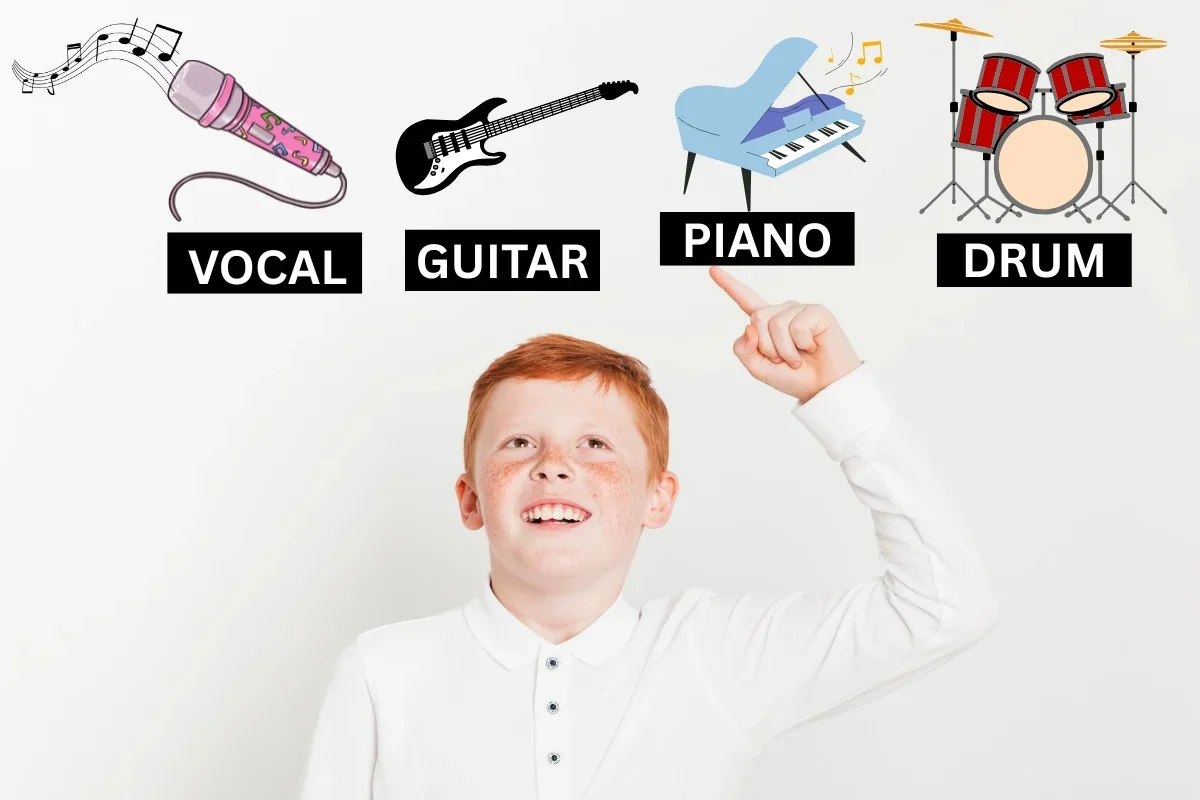How to help your child stay consistent with music practice?
Struggling to get your child to practice music regularly? You’re not alone, and there’s a fun way to make every session count!
Helping your child stay consistent with music practice is key to their musical growth and musical enjoyment. These music practice tips for kids, like short, regular practice sessions and positive parental involvement, build muscle memory, confidence, and a lifelong love for playing an instrument.
Why Consistency Matters in Music Practice
Consistency is the most important factor for real growth in music education. When your child practices regularly—whether in piano, drum, or violin lessons,they build muscle memory, confidence, and focus.
Organizing an environment for even a small amount of practice daily will develop your young musician’s skills, whilst enhancing the natural reward of music practice.
Understanding Your Child’s Music Journey
Every music student learns at their own pace, whether in piano lessons, drum lessons, or violin lessons. What matters most is steady music practice and dedicated practice, not perfection. Each small step builds confidence, musical growth, and joy in their music journey.
Set Up a Realistic Practice Routine
Having a regularly structured practice routine develops both focus and muscle memory in your child.
Practice sessions should be brief and fun, which will encourage music practice to become part of their daily routine. With dedicated practice time and gentle encouragement, improvement will come easily and joyfully!
Make Practice Enjoyable and Rewarding
Make music practice interactive and fresh with a sticker chart, small rewards, and repertoire that inspires your child. Recognizing little wins helps sustain motivation and inspires your child. When practice sessions are enjoyable, intentional practice becomes a habit.
Create a Dedicated Practice Space
A calm space with a piano, guitar, or digital piano will allow your child to play undistracted. Creating a dedicated space for practicing will establish focus as well as a practice commitment.
The benefit is the musical development and musical enjoyment that occurs every time your music student practices.
Be Part of Their Practice — Parental Involvement Counts
When parents are actively engaged, music practice becomes more meaningful for children. Observe during piano, violin, or drum lessons, offer praise, and rejoice in the little victories. Parental involvement supports musical growth and makes the music learning experience fun for every music student.
Turn Practice Into Play: Encourage Exploration
Provide opportunities for your child to play music at will and experience their creativity in practice sessions. Consider encouraging them to improvise, to create a summer music challenge, or to learn favorite songs, all ways to introduce joy to music practice. This process promotes a sense of enjoyment for music, a sense of growth, and a passion for learning an instrument.
Overcoming Practice Struggles
When your child isn’t motivated, try breaking pieces into smaller parts or adjusting practice habits. Shorter practice sessions and playful exercises keep music practice manageable. These strategies help music students stay consistent and continue their music journey with confidence.
Celebrate Progress, Not Perfection
Concentrate on small victories that could encourage musical enjoyment and confidence in your child. Annotate every practice session and milestone achieved rather than having to focus on a perfect performance.
This positive mindset encourages consistent practice, musical advancement, and enjoyment of the entire musical experience.
Use Favorite Songs
Let your child play their favorite songs during music practice to make every session enjoyable. Short, fun practice sessions keep them motivated and build dedicated practice habits. This approach supports musical growth and boosts confidence. Most importantly, it nurtures musical enjoyment every day.
Set Achievable Goals
Break music pieces into small, manageable sections for your child’s practice sessions. Celebrating each milestone encourages dedicated practice and helps musical growth. This approach makes music practice feel rewarding and keeps your music student motivated. Over time, consistent effort ensures progress happens naturally.
Rotate Instruments for Variety
Encourage your child to try out different instruments (piano, guitar, drums, or violin) during practice. Rotating instruments keeps music practice new and fresh. It nurtures music enjoyment and encourages the development of different skills. It's also helpful for consistent musical growth and a longer period of interest.
Conclusion: Nurturing Lifelong Musical Enjoyment
Learning music will be a long road, and consistent practice time builds muscle memory and musicianship. Every practice session helps your child play with joy if you have an active role in encouraging your child and a gentle and positive frame of mind. Progress always happens when you practice regularly, and your child will develop a lifelong love of playing music.
Give your child the joy of music practice! Book a trial lesson at Zoom Twin Cities and start their music journey today.



